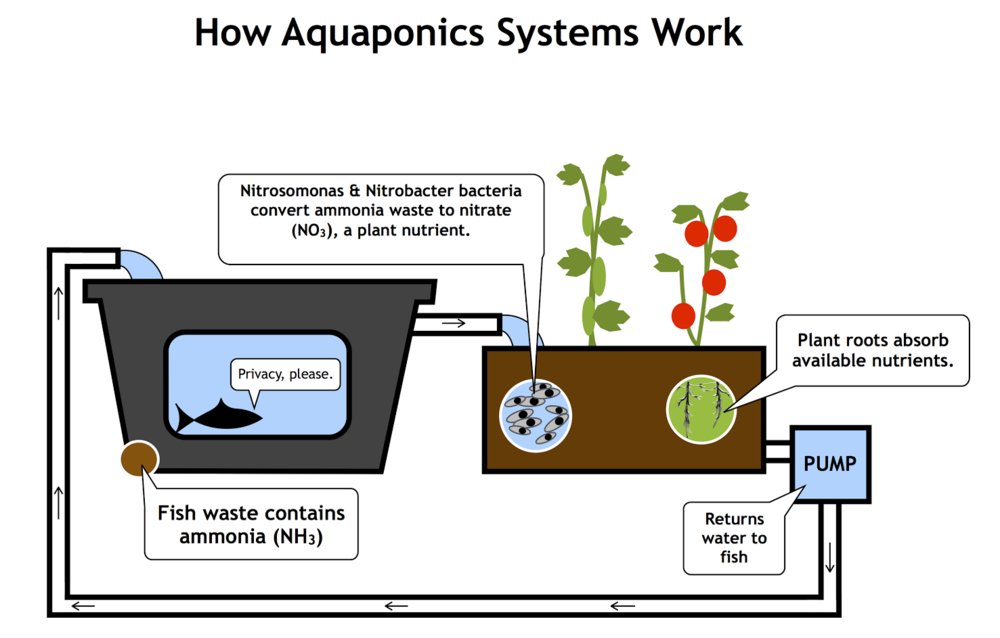If you notice the plants in your aquaponic system are struggling to flower or fruit properly – maybe with shriveled, yellowing, and/or stunted growth, it is likely a sign of nutrient and/or mineral deficiency as detailed in the infograph above.. In an aquaponic system, water from an aquaculture system is fed to a hydroponic system where the by-products are broken down by nitrifying bacteria initially into nitrites and subsequently into nitrates that are utilized by the plants as nutrients. the water is then recirculated back to the aquaculture system.. Aquaponics is a recirculating technology that combines aquaculture with hydroponics. it allows nutrients from fish waste to feed plants and thus saves water and nutrients..
In this video, dr. nate storey of bright agrotech introduces the basics of aquaponic plant nutrients. see more here: http://blog.brightagrotech.com/topic/aqu.... Benefits of aquaponics . there are many aquaponics benefits compared to growing in soil including, but not limited to, not needing to spend a lot of time on your hands and knees (think digging holes in the dirt, pulling weeds, and an aching back from bending over so much).. Nutrient management in aquaponics just like with a hydroponic system, or any growing system for that matter, ph plays a key role in a plant’s ability to take up nutrients. if ph gets too far out of the range where a particular element is most available to the plant, the plant will become deficient in that element..
